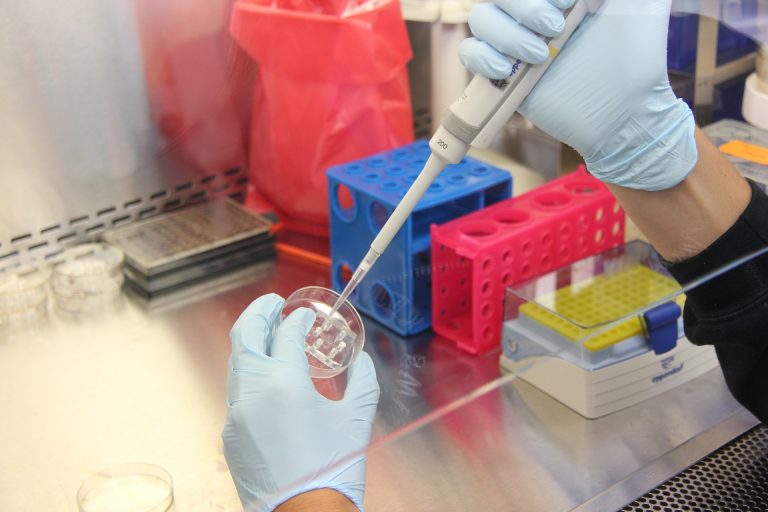In April 2020, the Trump administration cut funding for a project studying the spread of coronaviruses from bats to humans. The project was being carried out at the Wuhan Institute of Virology (WIV), a lab at the epicenter of the Coronavirus Disease 2019 (COVID-19) lab leak theory.
In response to the order from the Trump administration, the National Institutes of Health (NIH) instructed EcoHealth Alliance (EHA) to stop spending the remaining $369,819 of its 2020 grant money on the project. The NIH had previously disbursed the funds to EHA, which sponsored the WIV project for five years.
A new book titled “Nightmare Scenario: Inside the Trump Administration’s Response to the Pandemic That Changed History,” written by Washington Post reporters Damian Paletta and Yasmeen Abutaleb, reveals how members of the NIH, including Dr. Anthony Fauci, resisted Trump’s move to cut funding.
Fauci is the chief medical advisor to the President and director of the National Institute of Allergy and Infectious Diseases (NIAID), one of the 27 centers and institutes that make up the NIH.
After hearing about the order, Fauci and NIH Director Francis Collins questioned the White House and the Department of Human and Health Services (HHS) about the NIH’s authority to cut off funding for a peer-reviewed grant in the middle of a budget cycle.
Success
You are now signed up for our newsletter
Success
Check your email to complete sign up
“The HHS general counsel told them to do it anyway and made clear it was a direct order from the president, implying that their jobs were on the line if they didn’t comply. Fauci and Collins reluctantly agreed to cancel the grant,” says the book.
Fauci spoke about the incident to his longtime friend and HIV/AIDS activist Peter Staley, who pushed him to resist the order by threatening to resign. However, Fauci dismissed the idea. “You want us both to resign over a $3.7 million grant?” he said to Staley.
In a June 2020 testimony at the House Energy & Commerce Hearing, Fauci claimed that he had no idea why EcoHealth funding to the coronavirus project was suspended. “Why was it canceled? It was canceled because the NIH was told to cancel it… I don’t know the reason, but we were told to cancel it,” Fauci said.
Investigations
On June 15, the HHS announced an investigation into how the NIH monitors and manages its grant programs. The enquiry will involve the period between 2014 and 2021. The decision to launch the investigation stemmed from intense public scrutiny of NIH grants given to the WIV.
“We share stakeholders’ concerns regarding compliance and oversight of NIH grant funds. We have been monitoring this issue for some time and consider it a high-priority matter that can pose a threat to the integrity of the NIH grant program,” Tesia Williams, director of communications for the HHS Office of Inspector General (HHS-OIG), said to CNN.
Almost 80 percent of NIH funding goes into research grants, including those awarded to foreign organizations. The HHS-OIG seeks to ensure that the grants are used in accordance with federal requirements.
At a Senate hearing in May, Fauci admitted that the NIH provided $600,000 in grants to the Wuhan lab for researching coronaviruses in bats. “About $600,000 was spent over a five-year period… That comes to anywhere between $125 (thousand) and $150,000 per year that went to collaboration with Wuhan,” he said.
In early June, two House Republican leaders launched a congressional inquiry into the HHS’ failure to review grants that went to the WIV. Republican Representative Jim Jordan, a ranking member of the House Judiciary Committee, and Republican Representative Mike Gallagher wrote a letter to HHS Senior Science Adviser David Hassell on the issue, stating that “Americans deserve answers about the origins of the COVID-19 pandemic.”
In a June 3rd statement, former President Trump said that “our Country is fortunate I didn’t do what Dr. Fauci wanted me to do.” Trump stated that Fauci opposed his decision to close America’s borders to China during the onset of the pandemic.
“There are a lot of questions that must be answered by Dr. Fauci. The funding of Wuhan by the United States was foolishly started by the Obama Administration in 2014 but ended under the Trump Administration. When I heard about it, I said ‘no way.’ What did Dr. Fauci know about ‘gain of function’ research, and when did he know it?” Trump said in the statement.
















